U of T expert on the troubled history Black people have had with swimming

Published: August 20, 2018
Why did the Black boy drown? Because he couldnŌĆÖt swim.
And he couldnŌĆÖt swim because learning to swim is one of those intersections where race, space and class collide. . And most of those deaths occur in public swimming pools.
last summer. The group of 33 teenagers and their teachers were enjoying a classic Canadian experience ŌĆō canoeing in the wilderness. The group stood out in Algonquin Park because most of the kids were Black. And finding is rare.
The swimming ability of the group quickly became a key issue in the preliminary investigation into PerryŌĆÖs death. It turned out that
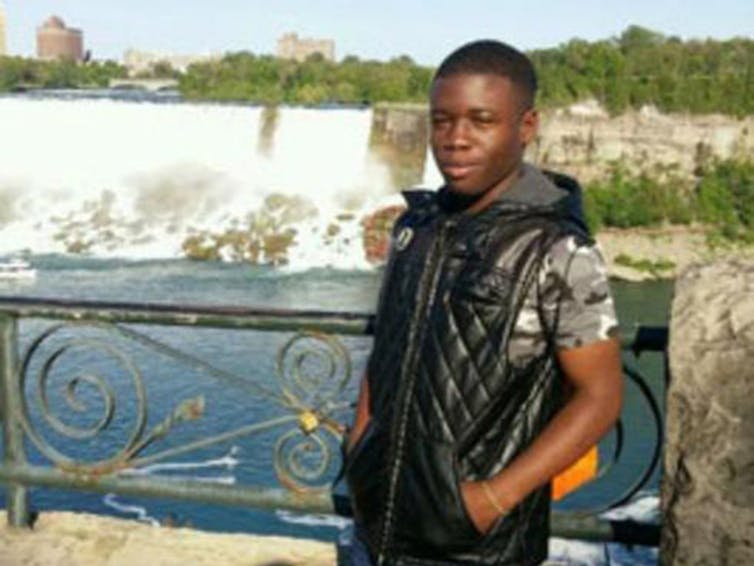
Swimming lessons
Swimming lessons are a rite of passage for most Canadian children. But race complicates the splashes, shrieks and laughter in swimming pools.
In Canada, or to swim as recreation. Most Canadian newcomers hail from Asia, Africa and the Caribbean. Jeremiah Perry was a recent immigrant from Guyana.
In my old multicultural Toronto neighbourhood of Parkdale, some 90 per cent of the kids learning to swim were white. In my new neighbourhood of Regent Park, which started with TorontoŌĆÖs oldest social housing project, . They donŌĆÖt appear to like swimming because the free municipal pool still overflows with white people. Yet the park around the pool is filled with brown and Black people enjoying the outdoors and frolicking in the sprinkler fountains. For them, taking the step from outside to inside the swimming pool seems to be as hard as trying to swim across the Atlantic Ocean.
ŌĆśThere are no trees in the waterŌĆÖ
Warm seas and golden sandy beaches are standard icons in tourism images of the Caribbean. So too are hotels with deep blue swimming pools. Surrounded by so much water, one would expect Caribbean people to be expert swimmers. They are not.
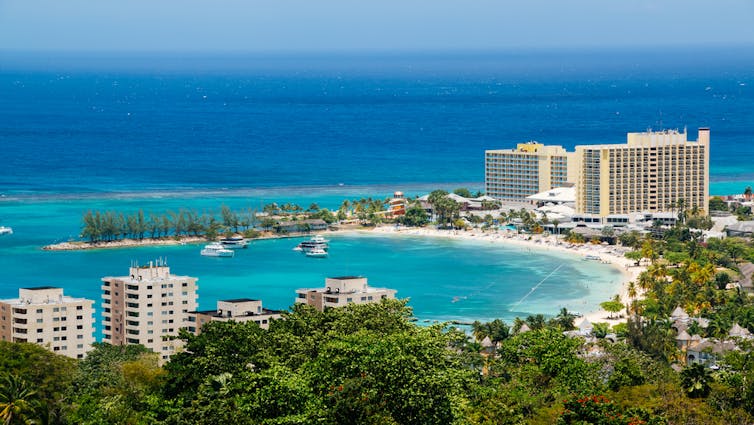
The majority of Caribbean swimming pools are owned by hotels and cater to tourists. Race colours the pools. Most of the people in the pools are white visitors, while those cleaning or serving cocktails at the pool-side bar are Black locals.
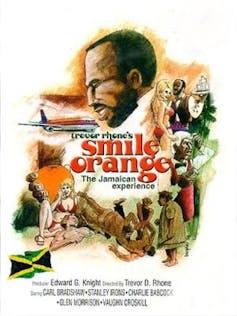
Seen through this lens, as shown in the classic movie , hotel swimming pools are the continuation of the old colonial project ŌĆō white people at play, cooling off in the water, in a country club-style setting. Black people at work, sweating in the hot sun.
Most people in the Caribbean donŌĆÖt have access to swimming pools. If they want to learn to swim, they must do so in a natural body of water such as the sea or a river.
As a child in Jamaica, my grandmother forbade us to go to the sea. ŌĆ£There are no trees in the water,ŌĆØ she warned us. Every year some child drowned, going out of their depth,
Drowning in racism
I learned to swim in England, where weekly swimming classes were a standard part of the school curriculum. A showed that there is a pent-up demand for swimming from Black people in England. Most donŌĆÖt go to the pool because they donŌĆÖt see other Black people swimming. The same report indicated South Asians are the least likely to venture into the water.
. Imagine a pool party. The Black people mingle around the pool, while the white people are in the pool.
African AmericansŌĆÖ antipathy towards swimming is rooted in segregation and racism. It was not so long ago that public beaches and pools in the United States displayed ŌĆ£Whites OnlyŌĆØ signs. Blacks who entered these beaches were chased off or got a good beating.
Segregation continues today, but it is more subtle. Most white children learn to swim in pools that are in private recreational clubs in the suburbs. Black children often contend with poorly maintained and over-crowded public pools in the urban centres ŌĆō if pools exist at all.
If parents canŌĆÖt swim, it is less likely that their children will learn to swim. Parents' fear of drowning means they are unlikely to sign up their kids for swimming lessons, even when these are available.
Drowning while Black
I like to do laps in the swimming pool for an hour or so. Front-crawl up the length of the pool and breast-stroke on the return. Dreadlocks streaming down my back. Keeping time with the clock. Every so often I will get the look. Whether from a Black or white person, it expresses surprise that I am at ease in the water. Sometimes, it starts a conversation.
How many times have I heard that Black people canŌĆÖt swim
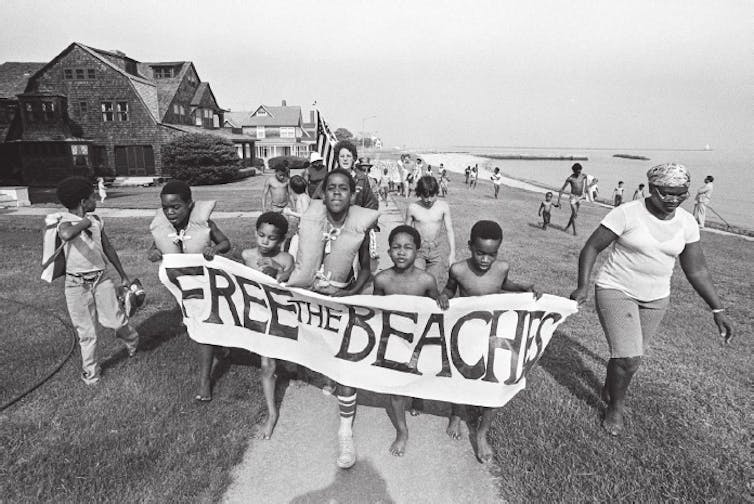
These comments attempt to Scientific racism is nothing new when it comes to the Black community. Its original purpose was .
The echoes of past stereotypes continue to shape Black lives. In the case of swimming, scientific racism now claims that Black people are less likely to swim as
These explanations avoid looking at how swimming and systemic racism intersect. They do so on so many levels in my local pool. The poolŌĆÖs general advertising reaches middle-class white people from outside the neighbourhood, they drive to it attracted by its . The pool has done little outreach targeting the Black community, including advertising swimming lessons for its children.
Swimming to the future
Swimming is part of the cultural capital of a middle-class lifestyle. The poorer you are, the less likely you are to learn to swim or visit a pool. The spectre of colonialism lurks. The high drowning rates among Black people is merely another symptom of the .
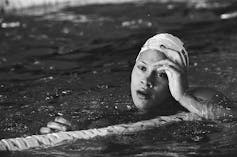
Olympic swimmers are the apex of achievement in sport. For a long time, Black people were absent from the elite swimming teams. The She was from Curacao in the Caribbean and swam on the Dutch team. In 1988,
Each decade the number of . The latest was in swimming at the 2016 Rio Olympics.
Black swimmers at the Olympics give hope that swimming is shifting from a white sport to a more diverse one. As attitudes shift, more Black children should learn to swim and the drowning rate should fall.
is a PhD student at the Ontario Institute for Studies In Education at the .
This article was originally published on . Read the .
![]()



